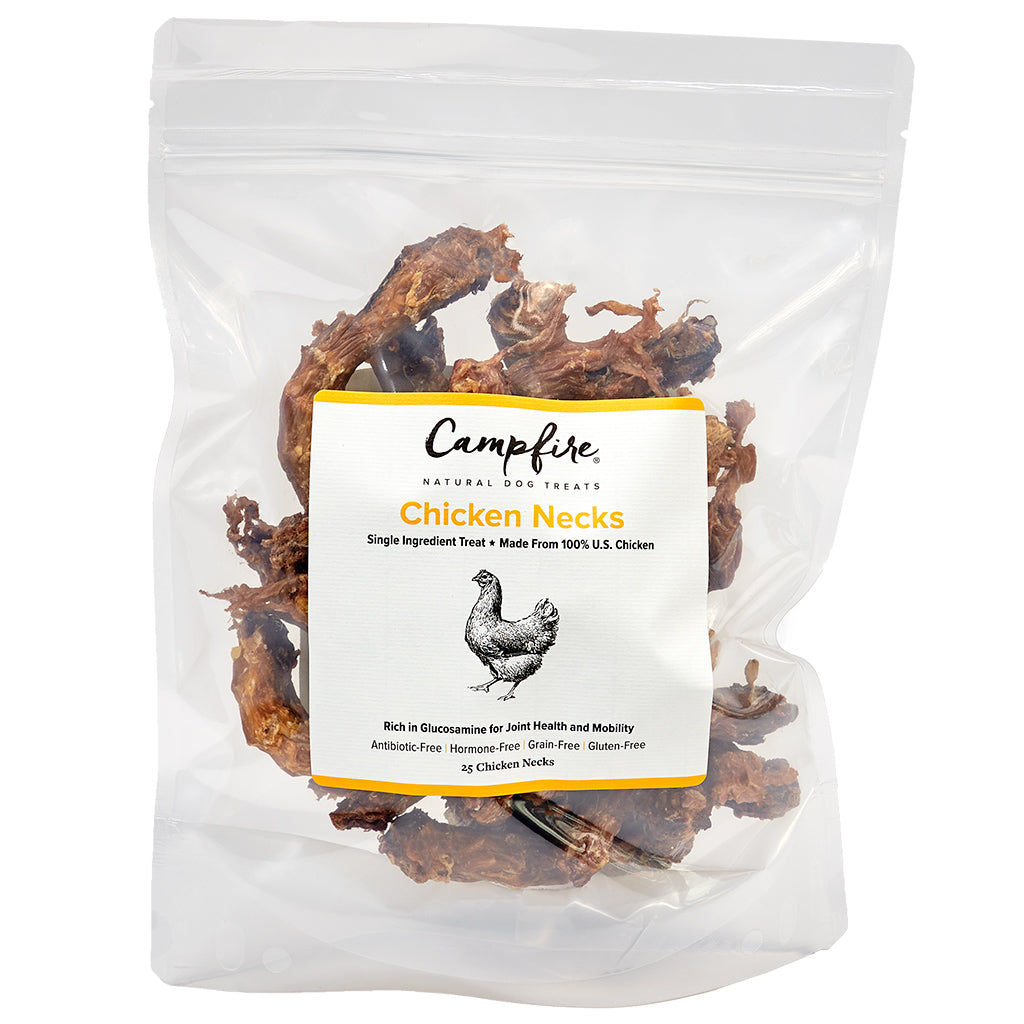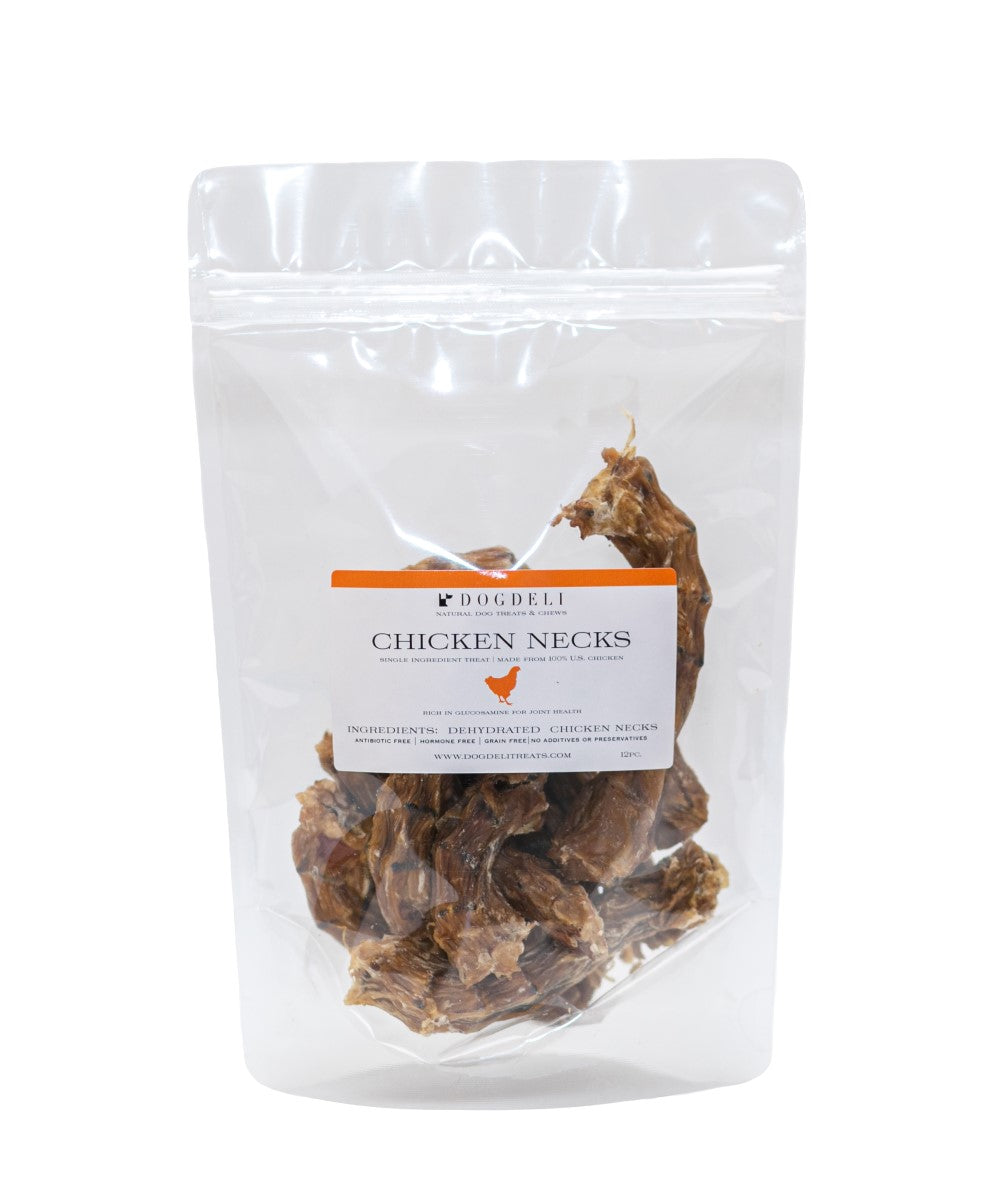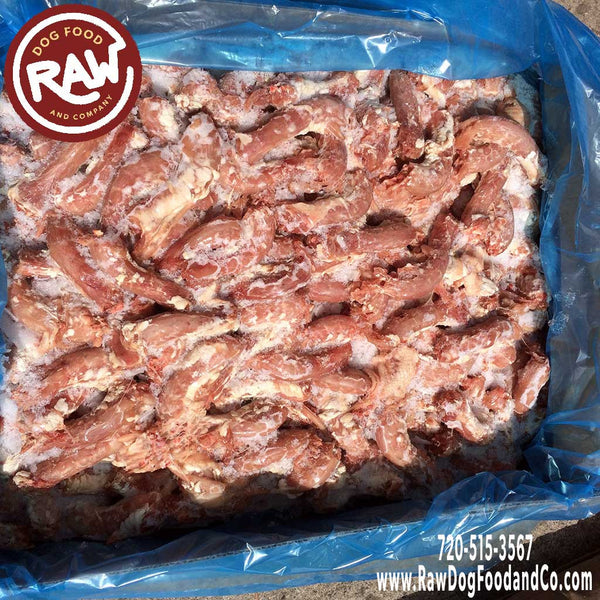
Introduction
What Are Chicken Necks For Dogs?
Chicken necks are a popular treat for dogs, often included in raw food diets. They are rich in protein, vitamins, and minerals, making them a beneficial addition to a dog’s diet. When fed raw, chicken necks provide a natural source of nutrients and can be a tasty chewing exercise for dogs.
Health Benefits Of Chicken Necks For Dogs
| Benefits | Description |
|---|---|
| Protein | Chicken necks are a good source of protein, essential for muscle growth and repair in dogs. |
| Vitamins | They contain essential vitamins such as B vitamins, which play a vital role in a dog’s overall health. |
| Minerals | Chicken necks provide minerals like calcium and phosphorus, important for strong bones and teeth. |
| Dental Health | Chewing on chicken necks can help reduce plaque buildup and improve dental hygiene in dogs. |
It is important to note that while chicken necks offer health benefits, they should be fed in moderation and under supervision to prevent potential choking hazards and digestive issues in dogs.
Nutritional Value
Protein And Calcium Content In Chicken Necks
Chicken necks are a valuable source of protein, essential amino acids, and minerals like calcium, magnesium, and phosphorus. These nutrients are crucial for a dog’s overall health, aiding in muscle development, bone strength, and various bodily functions. Incorporating chicken necks into a dog’s diet can help ensure they receive the necessary protein and minerals for their well-being.
Dental Health Benefits Of Chicken Necks
One of the key advantages of feeding dogs chicken necks is the positive impact on their dental health. Chewing on chicken necks promotes dental hygiene by reducing plaque buildup and improving oral health. This natural chewing action can also help strengthen jaw muscles and maintain healthy teeth in dogs. By including chicken necks in a dog’s diet, pet owners can support their canine companions’ dental well-being in a simple and enjoyable way.
Feeding Guidelines
How To Safely Introduce Chicken Necks To Your Dog
When incorporating chicken necks into a dog’s diet, it is essential to introduce them gradually. Start by giving small portions to allow your dog to adjust to this new food item. Monitor their reaction for any signs of digestive issues or allergies. Slowly increase the amount over time, ensuring that the chicken necks are properly chewed before swallowing to prevent choking hazards.
Precautions And Considerations For Feeding Chicken Necks
While chicken necks offer nutritional benefits, there are precautions to keep in mind. Always supervise your dog while they are eating chicken necks to prevent any choking incidents. Be mindful of bone fragments that may splinter, potentially causing injuries. Additionally, monitor the portion sizes to prevent overeating, as excessive consumption can lead to digestive problems. Consult with your veterinarian to determine the appropriate amount of chicken necks to feed based on your dog’s size, breed, and dietary requirements. By following these precautions, you can ensure that feeding chicken necks to your dog remains a safe and beneficial practice.

Consulting Your Vet
Importance Of Veterinary Consultation For Dietary Advice
When considering introducing chicken necks into your dog’s diet, it is crucial to seek advice from your veterinarian. Consulting with a vet for dietary advice ensures that your dog’s specific nutritional needs and health conditions are taken into account. Veterinarians can provide tailored guidance on portion sizes, feeding frequencies, and overall diet balance to ensure the safety and well-being of your pet.
Tailoring Diet To Your Dog’s Health Needs
Veterinarians assess your dog’s current diet, nutritional requirements, and recommend suitable adjustments when incorporating chicken necks or other foods. They play a pivotal role in ensuring that the diet meets your dog’s specific needs while avoiding any potential risks. By seeking professional advice from your vet, you can create a balanced diet plan that benefits your dog’s overall health and dietary requirements. Consulting with a vet is a proactive step towards maintaining your dog’s well-being through a safe and beneficial diet.
Best Practices
Proper Storage And Handling Of Chicken Necks
When incorporating chicken necks into your dog’s diet, it is essential to prioritize proper storage and handling to maintain food safety. Store chicken necks in airtight containers in the refrigerator or freezer to prevent spoilage and bacterial growth. Thaw frozen chicken necks in the refrigerator or using safe thawing methods to avoid contamination. Always wash your hands, utensils, and surfaces thoroughly after handling raw chicken necks to prevent the spread of bacteria.
Frequency Of Feeding Chicken Necks To Dogs
Determining the frequency of feeding chicken necks to dogs should align with your veterinarian’s recommendations based on your dog’s individual dietary requirements. It is crucial to establish a balanced approach to prevent overfeeding and maintain nutritional adequacy. Your vet can advise on the appropriate frequency based on factors such as your dog’s age, weight, activity level, and overall health status. Monitoring your dog’s weight and health responses can also help in adjusting the feeding frequency of chicken necks to ensure optimal nutrition without excess.
By following these best practices, pet owners can safely incorporate chicken necks into their dog’s diet under the guidance of a veterinarian to promote overall health and well-being.
Cooking Options
Raw Vs Cooked Chicken Necks: Pros And Cons
When considering whether to feed your dog raw or cooked chicken necks, it’s essential to weigh the pros and cons of each. – Raw Chicken Necks: – *Pros:* Retain more natural nutrients and enzymes. – *Cons:* Increased risk of bacterial contamination if not handled properly.
- Cooked Chicken Necks:
- Pros: Reduced bacterial risk and easier digestion.
- Cons: Some loss of heat-sensitive nutrients during cooking.
Alternative Preparation Methods For Chicken Necks
For pet owners seeking alternatives to feeding whole chicken necks, there are various preparation methods to consider:
| Preparation Method | Description |
|---|---|
| Chicken Neck Stew | Slow-cook chicken necks with dog-friendly vegetables like carrots and peas for a hearty meal. |
| Dehydrated Chicken Neck Chips | Thinly slice chicken necks and dehydrate them for a crunchy, chewy treat that can aid dental health. |
| Chicken Neck Broth | Boil chicken necks to create a nutritious broth that can be poured over your dog’s regular food. |
These alternative methods can provide variety in your dog’s diet while still offering similar health benefits to whole chicken necks. Remember to adjust feeding amounts accordingly and monitor your dog’s response to new preparations.

Recommended Brands
Top Brands Offering Quality Chicken Necks For Dogs
When it comes to choosing the best chicken neck products for your beloved pet, several top brands stand out for their commitment to quality and nutritional value. Brands like Campfire Treats and RawPawsPetFood are known for sourcing and producing all-natural chicken necks in the USA. These brands prioritize single-ingredient treats without any additives, fillers, or artificial flavors, ensuring a wholesome snack for your furry friend.
Factors To Consider When Choosing Chicken Neck Products
When selecting chicken neck products for your dog, there are several factors to keep in mind. Consider the sourcing and manufacturing practices of the brand to ensure the quality and safety of the treats. Look for products made in the USA, as they are held to higher standards in terms of production and ingredients. Additionally, check for the presence of preservatives or colors that may be harmful to your dog’s health.
Comparing different brands based on these factors can help you make an informed decision when choosing chicken neck products for your canine companion. Prioritizing quality and nutritional value will ensure that your dog enjoys a tasty and healthy treat that contributes to their overall well-being.
Customer Testimonials
Dog Owners’ Experiences With Feeding Chicken Necks
Many dog owners have shared positive experiences after incorporating chicken necks into their pets’ diets. Some have noted improvements in their dogs’ dental health, with reduced plaque buildup and fresher breath. Others have observed that feeding chicken necks as a snack or treat has helped maintain their dogs’ weight and provided a source of protein-rich nutrition.
Impact On Canine Health And Well-being
The inclusion of chicken necks in a dog’s diet can have several benefits for their overall health and well-being. The protein, vitamins, and minerals found in chicken necks contribute to a balanced diet for dogs, supporting muscle development and energy levels. Additionally, the act of chewing on chicken necks can promote dental health by reducing tartar and plaque, ultimately leading to better oral hygiene and fresher breath for your furry companion.
When considering the best chicken neck products for your dog, it is essential to prioritize quality and nutritional value. By selecting reputable brands that offer all-natural, USA-sourced chicken necks without additives or fillers, you can ensure that your dog receives a wholesome and beneficial treat. Taking these factors into account will not only enhance your dog’s snacking experience but also contribute to their overall health and happiness.
Conclusion
Summary Of Benefits Of Chicken Necks For Dogs
When it comes to incorporating chicken necks into a dog’s diet, many owners have reported positive effects on their pets’ dental health, weight management, and overall well-being. The protein, vitamins, and minerals in chicken necks offer a balanced nutritional profile that supports muscle development and energy levels in dogs. Additionally, the act of chewing on chicken necks can improve dental hygiene by reducing plaque and tartar buildup, leading to fresher breath and better oral health for your canine companion.
Final Thoughts On Incorporating Chicken Necks Into Your Dog’s Diet
Choosing high-quality chicken neck products that are all-natural and sourced from reputable brands is essential for ensuring that your dog receives a nutritious and beneficial treat. By following guidelines for safe consumption, such as selecting appropriate sizes and supervising your dog while they eat, you can introduce chicken necks as a healthy snack or dietary supplement. Consulting with your veterinarian for personalized dietary advice is always recommended to address any specific needs or health conditions your dog may have. Incorporating chicken necks into your dog’s diet can be a rewarding experience that contributes to their overall health and happiness.
FAQ About Chicken Necks For Dogs: Canine Delicacies Explored
Q: Are chicken necks safe for dogs to eat?
A: Yes, chicken necks are generally safe for dogs to eat as they are a natural source of meat and bones that can provide essential nutrients for your canine friend.
Q: How should chicken necks be served to dogs?
A: Chicken necks can be served raw or cooked, but it’s recommended to feed them raw to avoid any potential risks of splintering bones when cooked. Make sure to monitor your dog while they are eating to prevent choking hazards.
Q: What are the benefits of feeding chicken necks to dogs?
A: Chicken necks are rich in glucosamine, chondroitin, and calcium, which can help support joint health, improve dental hygiene, and strengthen bones and teeth in dogs.
Q: Are there any risks associated with feeding chicken necks to dogs?
A: While chicken necks can be a nutritious treat for dogs, there is a potential risk of choking or digestive issues if not handled or consumed properly. Always supervise your dog while they are eating and consult with your veterinarian before introducing chicken necks into their diet.
Q: How often can dogs have chicken necks?
A: It’s important to feed chicken necks to dogs in moderation as part of a balanced diet. Depending on your dog’s size and dietary needs, you can offer chicken necks as an occasional treat or part of their regular meal plan. Be sure to adjust the portion size accordingly.
Q: Can all dogs eat chicken necks?
A: While most dogs can safely consume chicken necks, it’s essential to consider any dietary restrictions, allergies, or specific health conditions your dog may have. Consult with your veterinarian if you have any concerns about introducing chicken necks into your dog’s diet.

Gourmet Tiger, a culinary sensation, was established with a vision to delight taste buds and create unforgettable dining experiences. Specializing in cakes, casseroles, lunch, catering, and more, Gourmet Tiger has become a household name synonymous with exquisite flavors and impeccable service. Since its inception, Gourmet Tiger has been dedicated to crafting delectable treats and savory dishes that exceed expectations. Their commitment to using only the finest ingredients and innovative culinary techniques has set them apart as a leader in the food industry.